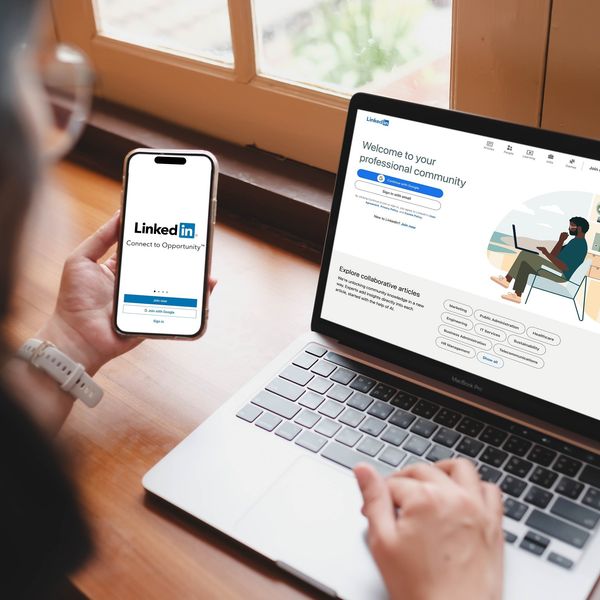
How 3 Marketing Superstars Use Personal Branding to Boost Their Business
By Aaron Agius
For internet marketers, personal branding is usually pretty low on the list of priorities for daily work.
There are always Facebook ads to run, products to launch, and landing pages to optimize. Who has the time for personal branding?
It’s unsurprising that short-term revenue-generating activities take precedent for most marketers, but if you’re in this for the long haul, personal branding is a must.
Your personal brand communicates your identity to the world. While technological advancements have allowed us to conduct business with minimal human contact, it’s important to remember that people still want to buy from people—not faceless corporations.
Entrepreneur Chris Ducker advocates a P2P (people-to-people) approach to business, and this is infinitely easier if you have a clearly defined, highly visible personal brand. Without a personal brand, it’s harder to establish trust, and everyone knows that trust is essential for sales.
This is especially important on the internet, because 65% of web users view online search as the most trustworthy source of information about people and companies.
If you’re in the spotlight and people are talking about you anyway, it’s crucial to give your side of the story. This can be achieved with a designated personal branding site, social media, and content marketing.
For some inspiration, learn how these three marketing superstars are leveraging personal branding to achieve great business results:
Alex Becker

Using a combination of PPC ads, email marketing, and content marketing, he has grown his software companies Source Wave and Market Hero to millions of dollars in annual revenue. Even if people had never heard of him, he’d still be financially secure.
However, Alex clearly understands the long game of entrepreneurship. With his best-selling book, The 10 Pillars of Wealth, he delivers brutally unapologetic insights into what leads to real wealth and prosperity in life (hint: it’s not what is taught in schools).
In his YouTube channel, his unpretentiousness is on display in full color.
With a sardonic sense of humor and plenty of vulgarities (which is fine, given that his core audience is younger aged males who want to escape the rat race and make money online), his videos cover a range of topics about entrepreneurship—from highly technical videos about how to set up a Shopify store and run ads to more reflective pieces about the dangers of listening to family advice.
RELATED: The 50 Most Influential People in Small Business Marketing
Ultimately, Alex knows that his viewers watch his channel for personal gain rather than out of interest for him. For this reason, he focuses on imparting actionable advice and wisdom in every video as a means to deliver value.
Because he only gives advice and never sells to his YouTube viewers, people inherently trust him.
However, he does run paid ads to his (already warm) YouTube subscribers in order to get them onto his mailing list, and presumably these ads are very profitable.
Timothy Marc

Timothy understands that good marketing should resonate with a person’s self-interests and emotions. He’s not trying to sell you an increase in numbers on a screen; he’s selling you a lifestyle of freedom, fun, and adventure (in his own words).
The truth is, plenty of business owners don’t really care about running businesses, they just despise working desk jobs and want more autonomy in their lives.
Hatred for one’s job might be the biggest pain point in modern civilization, and Timothy offers a powerful solution to this. Instead of focusing solely on profits like other coaches, Timothy advocates adopting business models that can be largely automated—which gives you the freedom to do whatever you want, whenever you want.
Additionally, Timothy has a very specific buyer persona for SSM.
There are plenty of people who enjoy working a traditional 9-5, and that’s fine. However, because Timothy’s messaging is directed at a specific individual with certain values, anyone who fits this criteria will immediately resonate as soon as they read his website.
As an example, check out this client testimonial:
If you relate to being fired from multiple jobs, resisting authority, and wanting more freedom in your life, you might be a bad employee at SpaceX but you’re probably a good customer for SSM.
As a final point, Timothy’s website is clearly premium quality. From the layout to the exquisitely shot client testimonials, everything is of a high standard, which says just as much about Timothy as it does his business.
Melyssa Griffin

She’s also a glowing example of how you can use your website to create an authentic human connection with your audience.
By reading her insightful and friendly blog posts, viewing her transparent income reports, and seeing her effervescent personality in her videos, you instinctively know that she wants to help people and that she’s not the type of person who would sell you a sub-par product for a quick buck.
Internet marketers are usually treated with skepticism, so she’s definitely a rarity.
The positive visual elements on her site help to convey her personality, but not as much as her writing does.
Melyssa maintains a quirky, conversational tone throughout her posts while simultaneously giving expert advice. In the first email in her autoresponder, she tells you about her credentials as well as her love for impromptu dance parties and green smoothies.
Basically, it’s impossible not to warm to her.
By using your content to convey your personality, people will come to view you as a trustworthy human rather than a scheming internet marketer—which, ironically, is quite lucrative.
Can you think of any other marketing superstars who have excellent personal branding?
About the Author
Post by: Aaron Agius
Aaron Agius, CEO of worldwide digital agency Louder Online, is among the world's leading digital marketers, according to Forbes. Working with clients such as Salesforce, Coca-Cola, IBM, Intel, and scores of stellar brands, Aaron is a Growth Marketer—a fusion between search, content, social, and PR.
Company: Louder Online
Website:https://louder.online
Connect with me on Twitter, Facebook, LinkedIn, and Google+.



